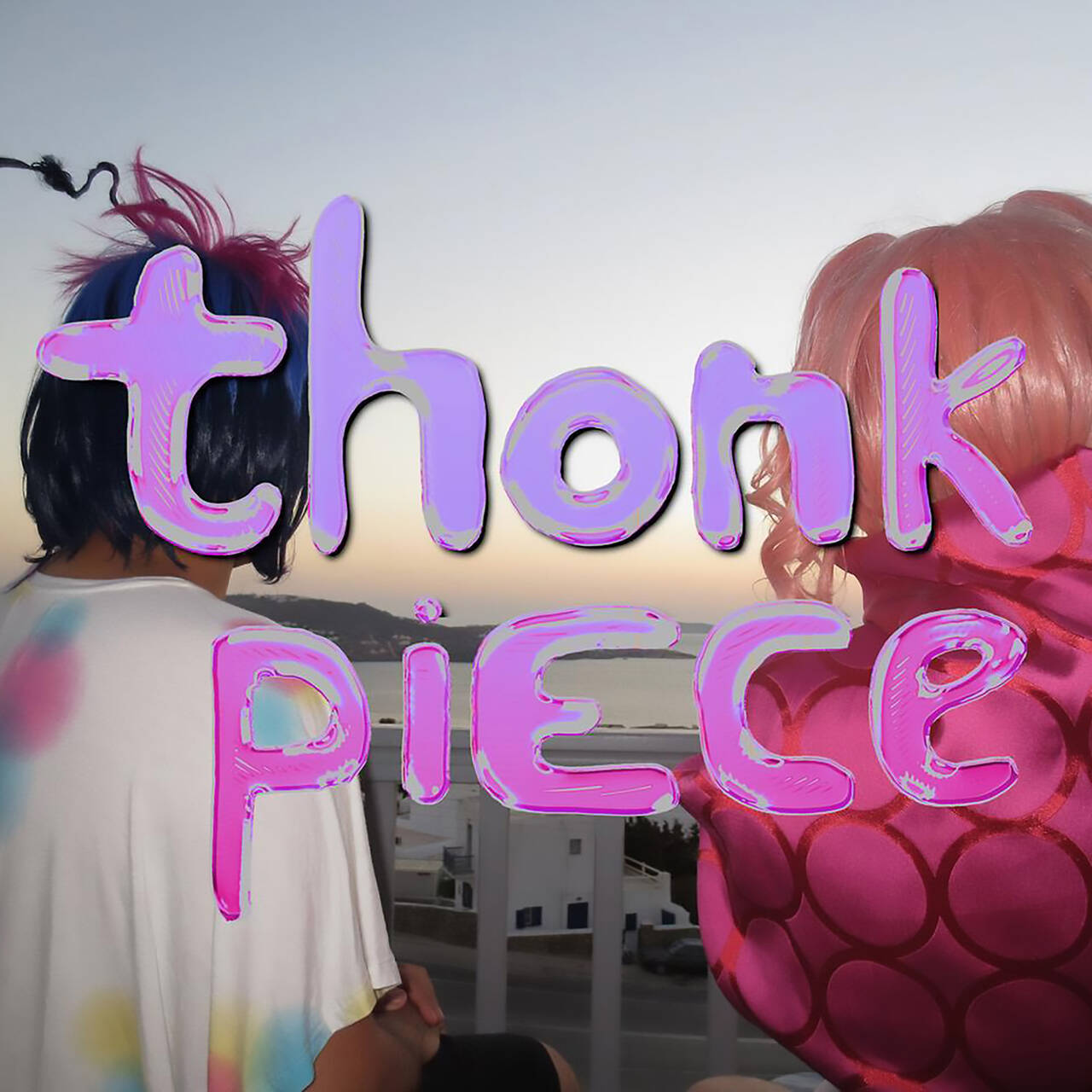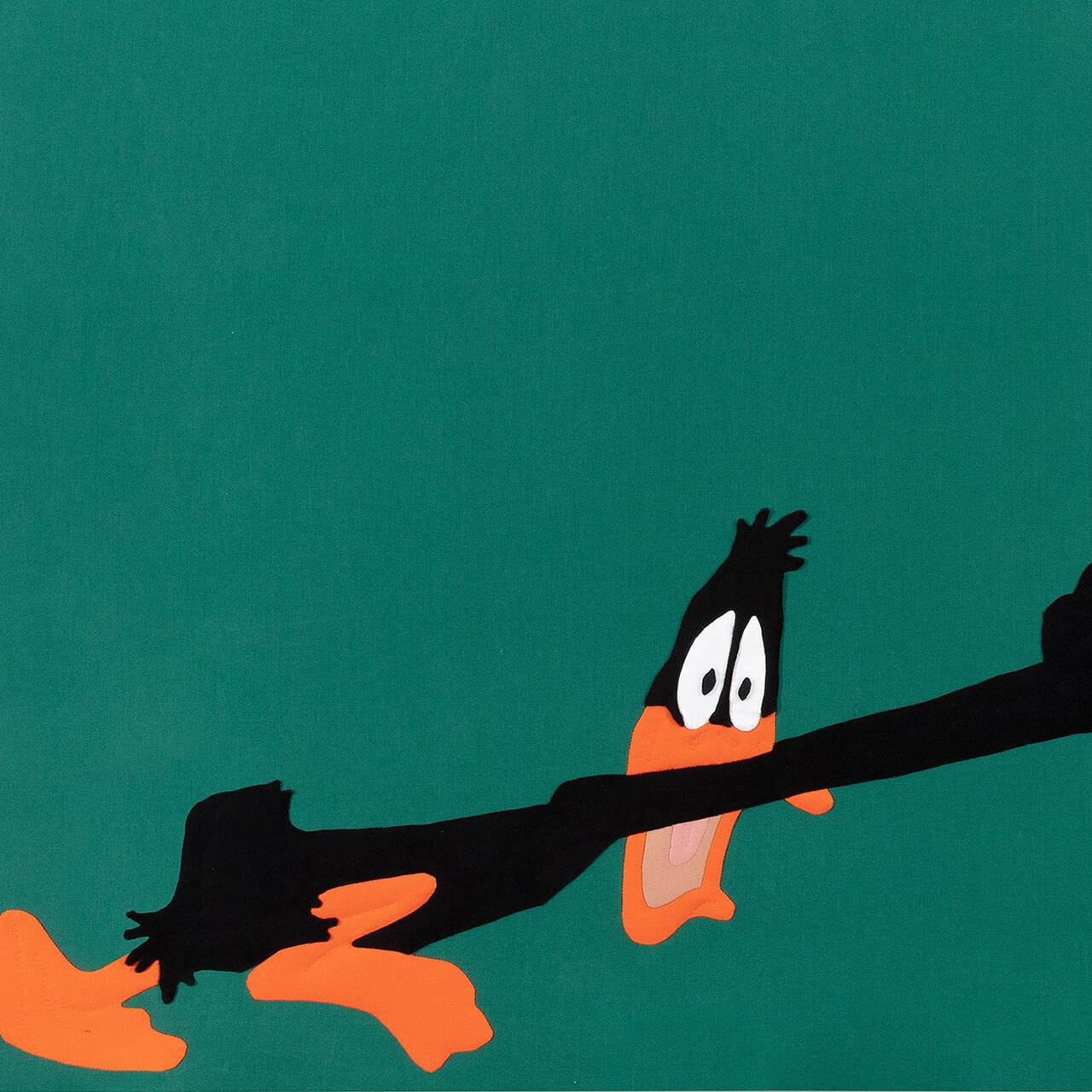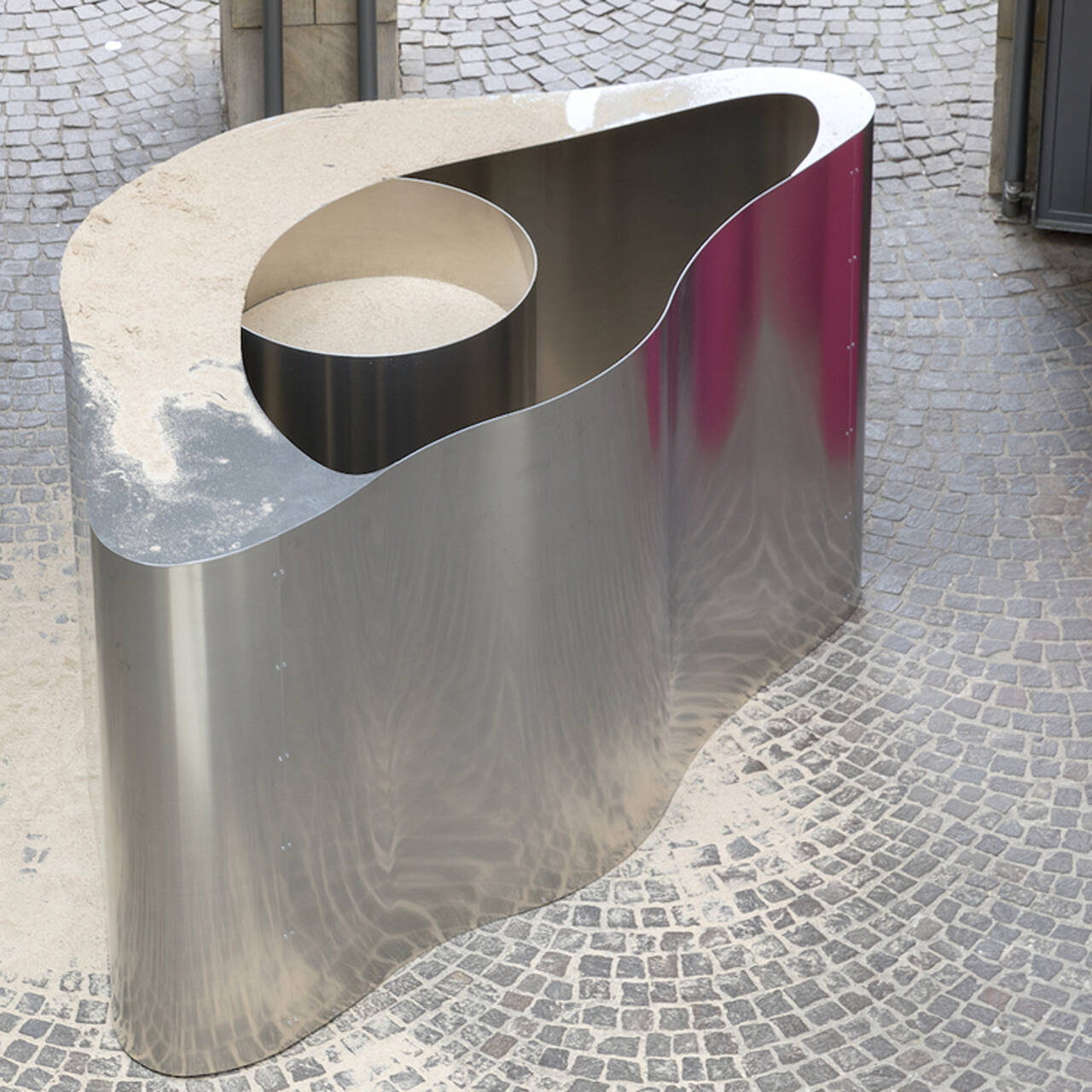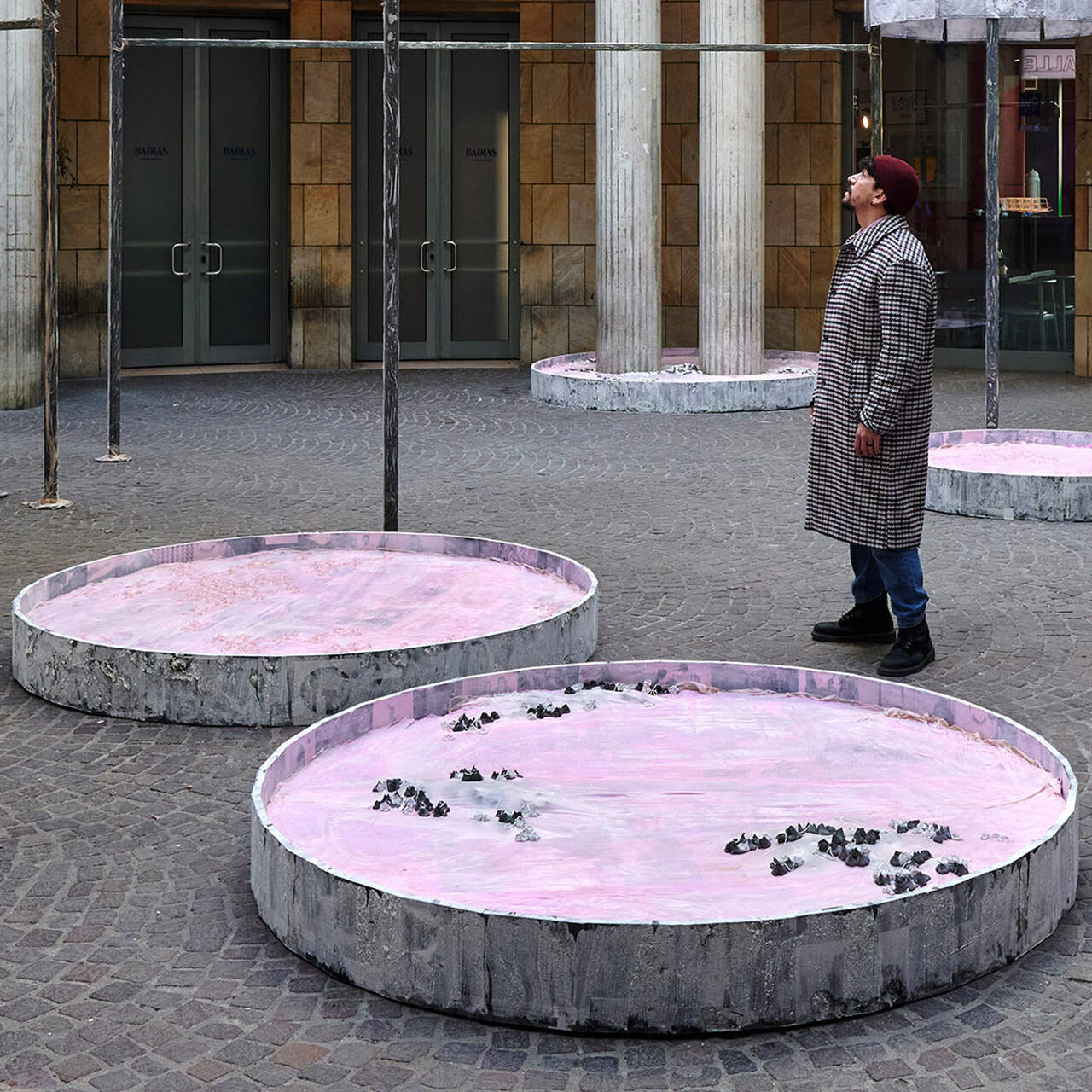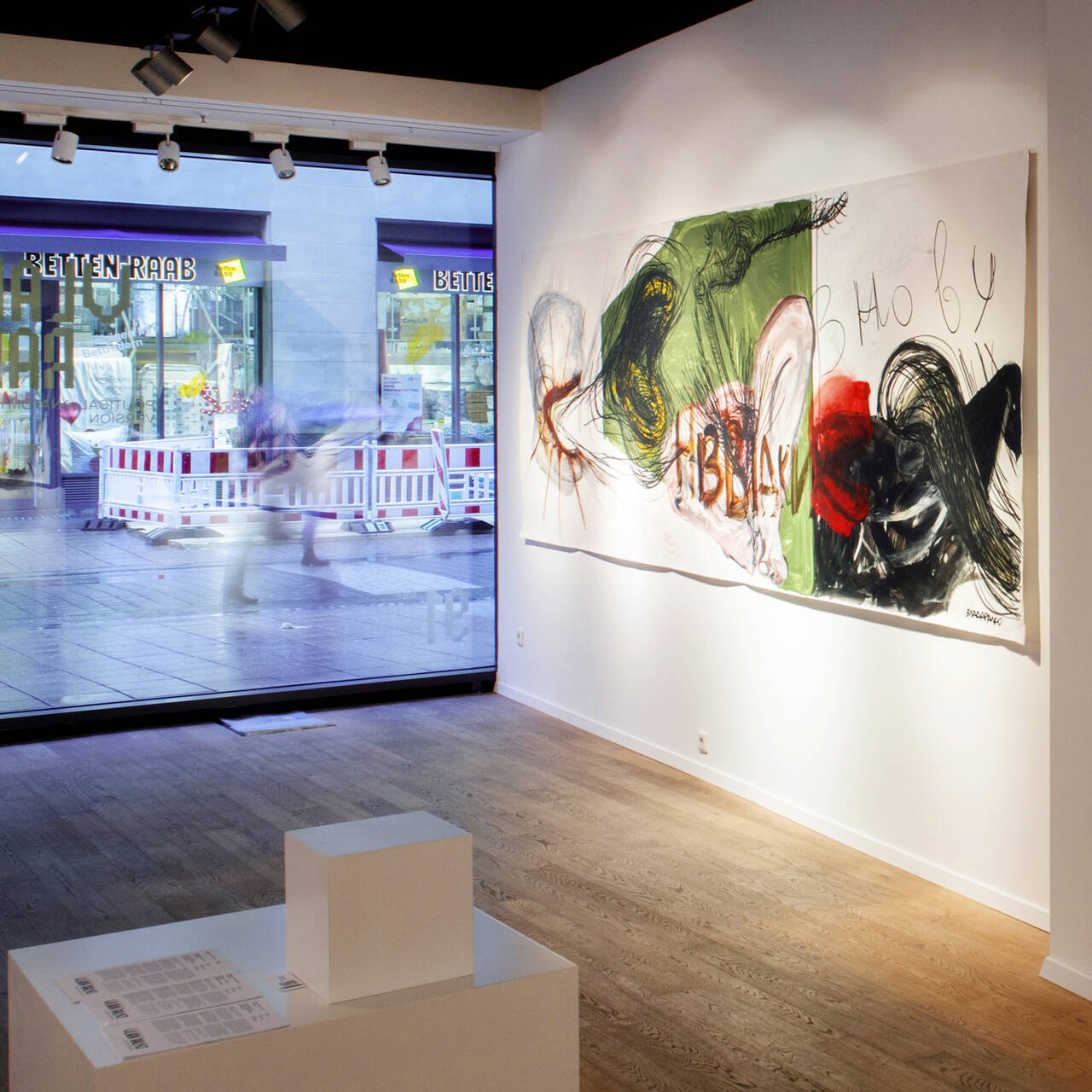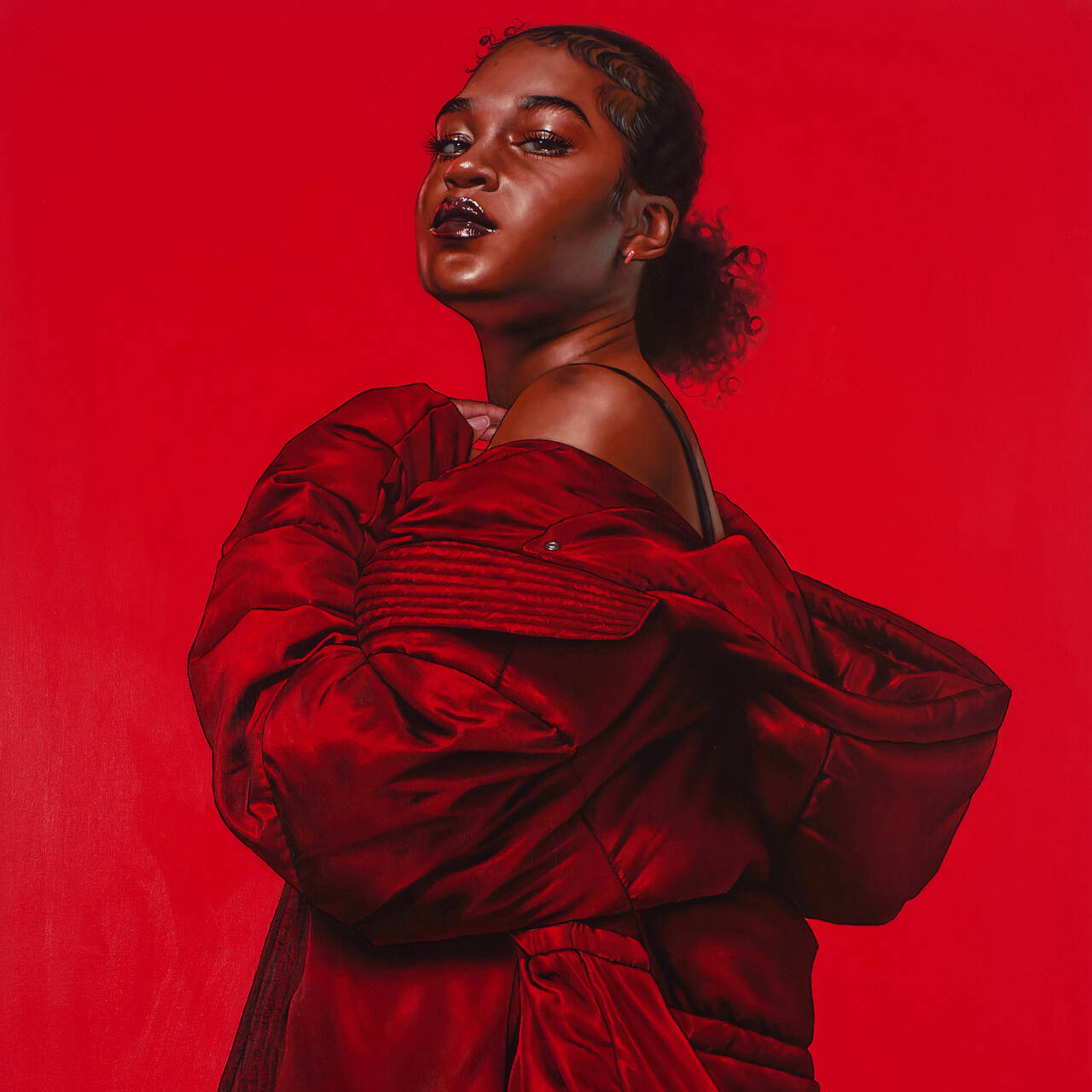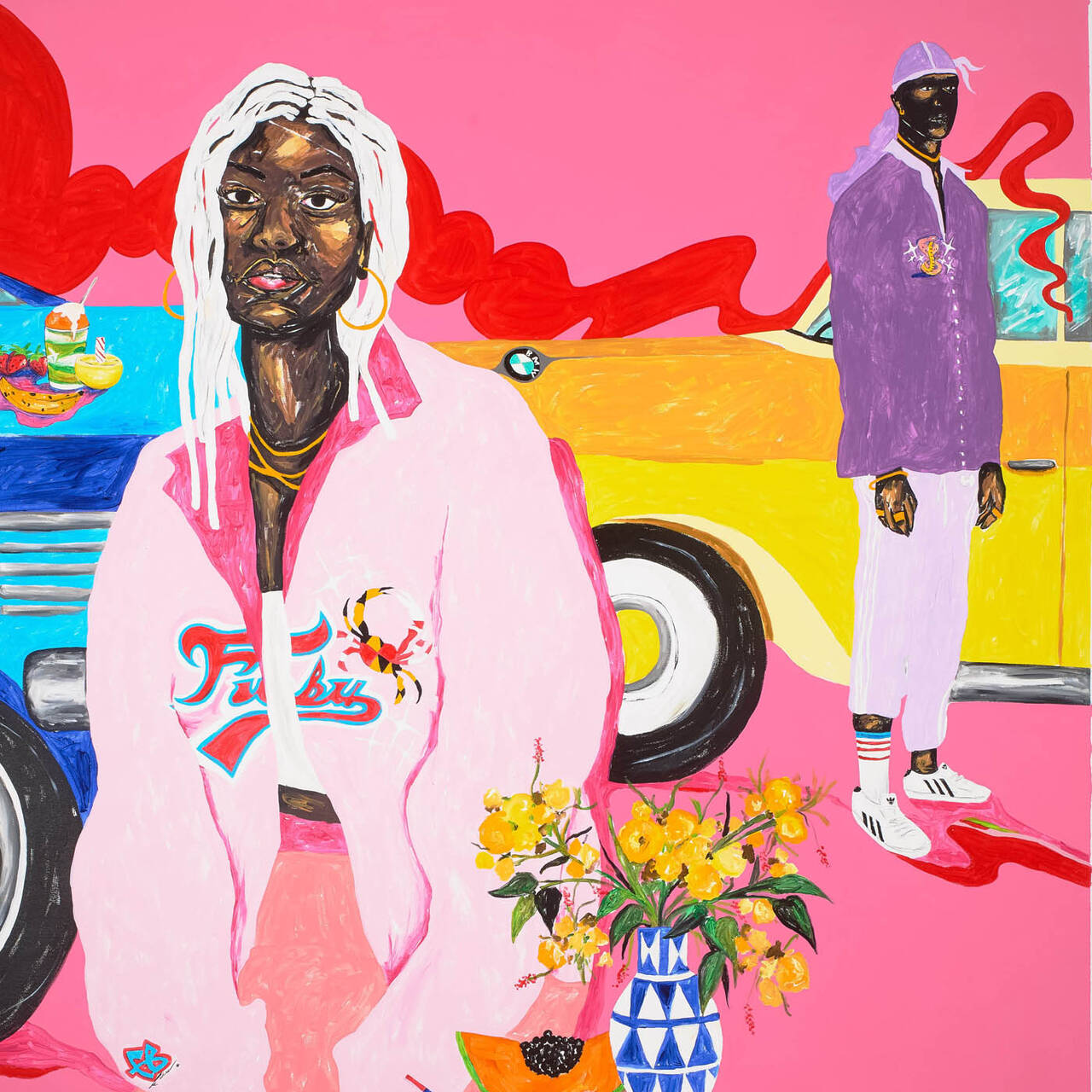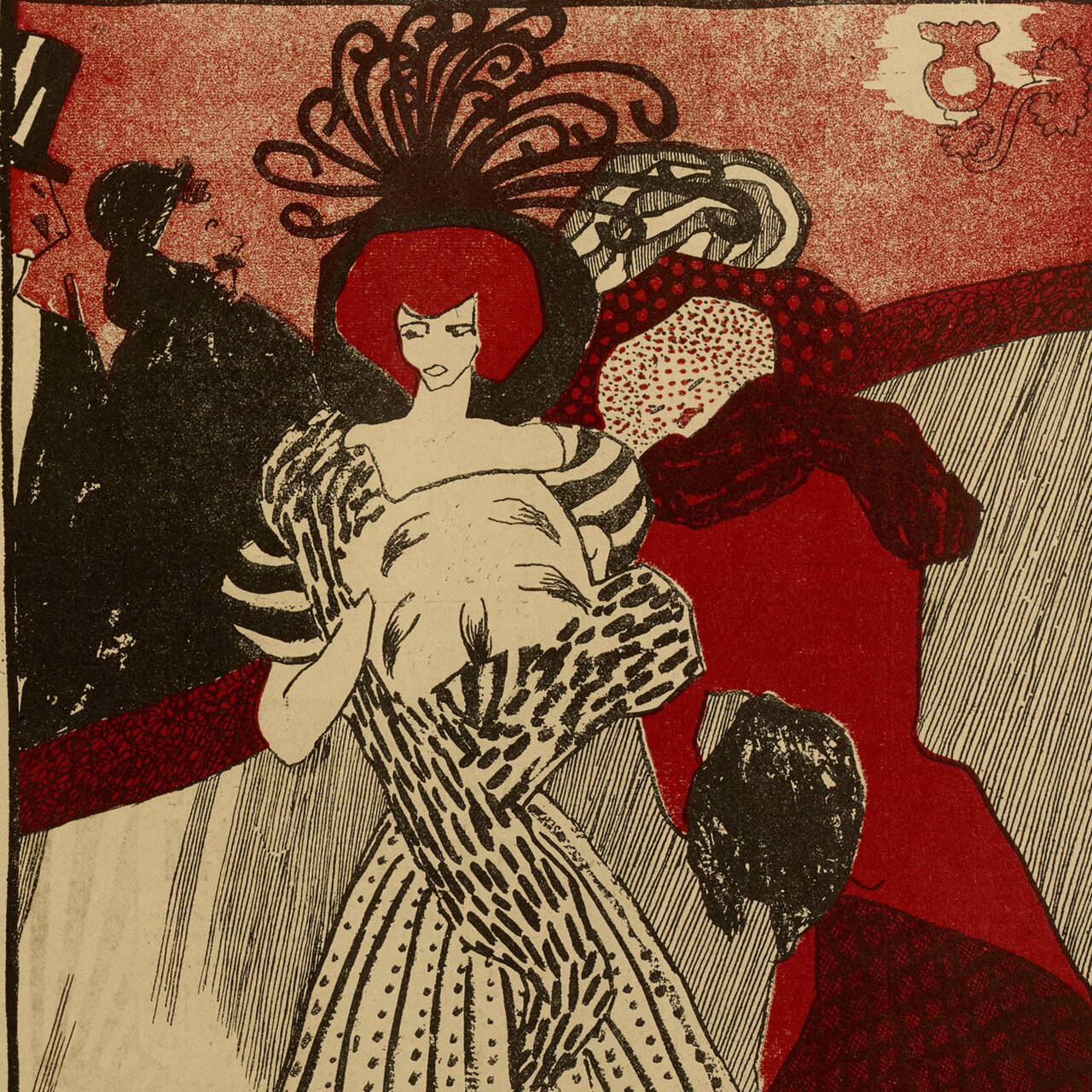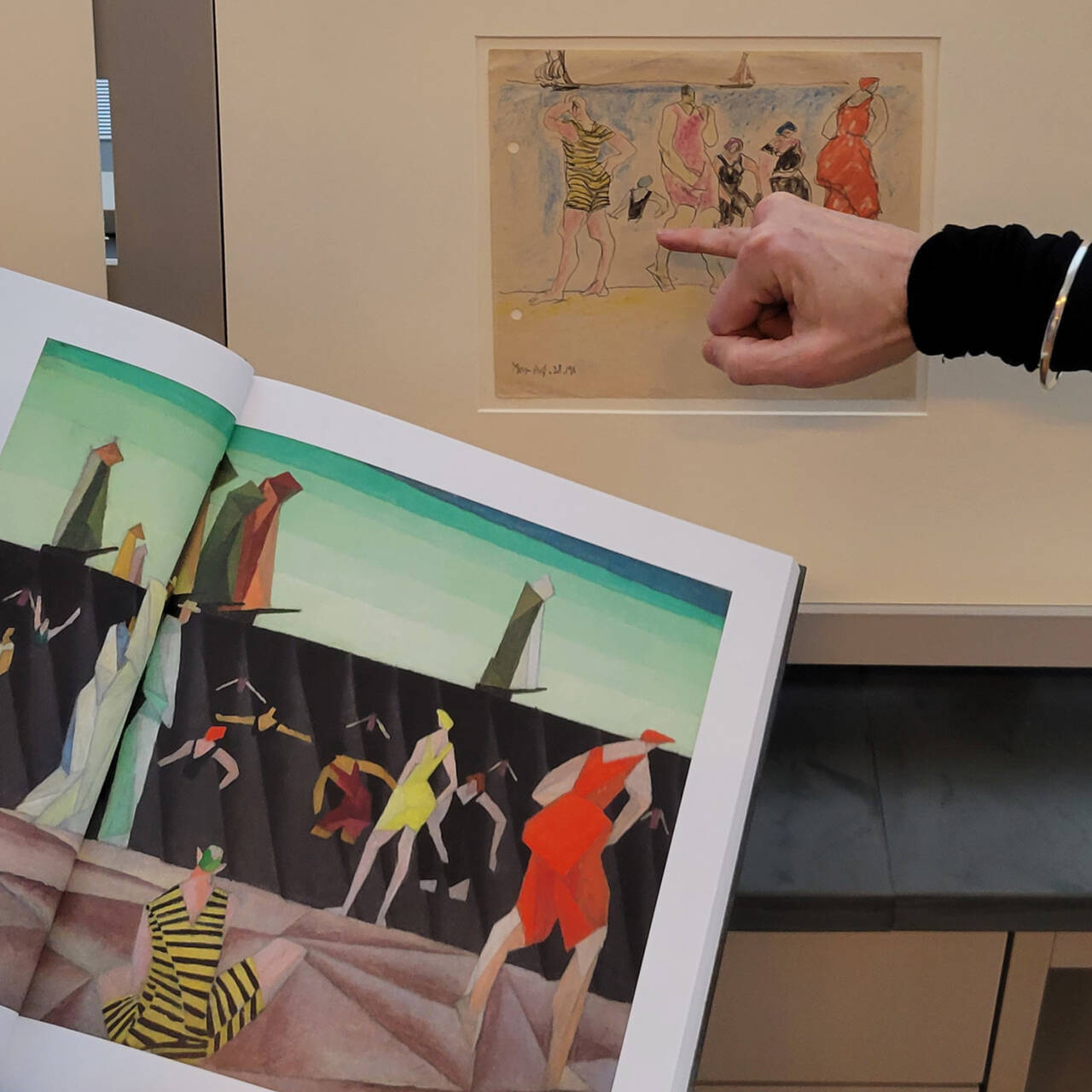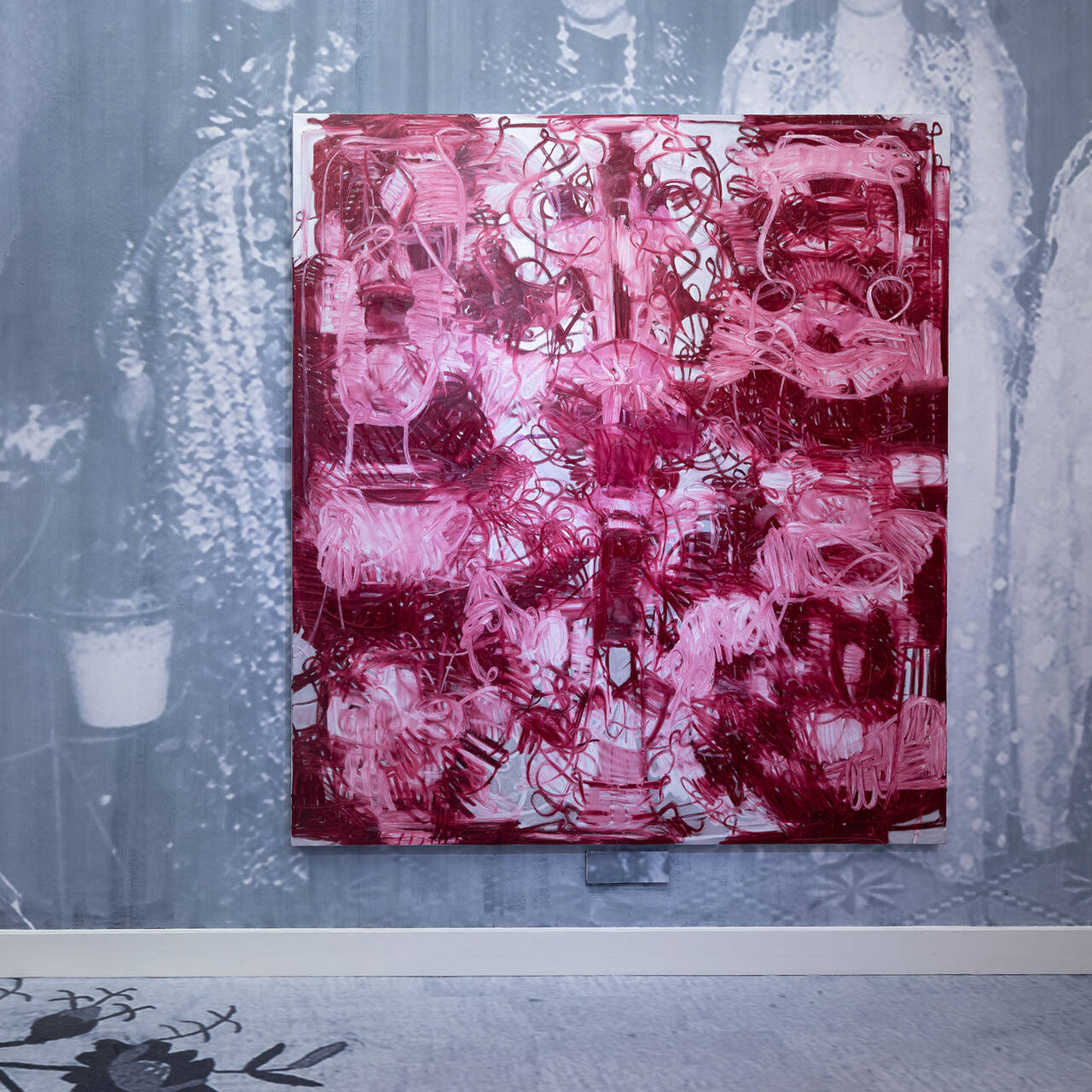She is a leader of the Champagne and Aishihik First Nations, one of the few self-governing First Nations in Canada. Researcher Jocelyn Joe-Strack on what she misses in the debates about climate change.
TRANSCRIPT:
SYLVIA CUNNINGHAM: Welcome to CRITICAL LAND. I’m your host, Sylvia Cunningham. This is the third episode of an English-language podcast from the SCHIRN debuting alongside its exhibition, “Magnetic North: Imagining Canada in Painting 1910-1940.” In this podcast series, we’re drawing from some of the themes in “Magnetic North” to go beyond what is displayed on the gallery walls through conversations with Indigenous artists and scholars. In today’s episode, you’ll hear from an Indigenous leader about land as she knows it.
JOCELYN JOE-STRACK: [Introducing herself] My name is Jocelyn Joe-Strack, and I live in Whitehorse, Yukon, and I’m a member of the Champagne and Aishihik First Nation from northwestern Yukon.
SYLVIA CUNNINGHAM: In 2019, Jocelyn Joe-Strack came to Germany as one stop on her European speaking tour of Canadian embassies. She was invited to share her perspective on climate change as an Indigenous scientist. In today’s conversation on CRITICAL LAND, Joe-Strack takes us through her experience in academia, from what initially compelled her to become a scientist to why today she calls herself a “scientist in recovery.” You’ll hear what’s shaped her as a leader and what she says is missing from conversations about climate change. As a member of the Champagne and Aishihik First Nation, Joe-Strack belongs to one of the few self-governing First Nations of Canada. She explains why that’s significant to her and her people.
JOCELYN JOE-STRACK: We’re very proud, I’m proud to say that I come from a family of leaders. In 1973, they went to Ottawa, including my dad, and presented their vision for “Together Today for our Children Tomorrow” for Prime Minister Pierre Trudeau and we still celebrate that. It happens on Valentine’s Day, where Valentine’s Day is also just this moment of deep pride for all of the fight that the leaders before us put forward. So I’m a “daughter of tomorrow” and a daughter of the land claims, and so the generation today, the work’s not done. There’s still so much to do, but we’ve been trained to do it and to be so committed to create a better tomorrow for our children to come and all of that is surrounded by our self-government and our determination to be able to evolve the society that we live in to better serve generations to come.
SYLVIA CUNNINGHAM: You mentioned your father, Willie Joe, was also a leader. Is there something that you learned from his style of leadership or perhaps have looked to as you go forward as a leader in your own community?
JOCELYN JOE-STRACK: Aw that’s a nice question. Yeah my dad was a visionary. He had really big ideas and I would like to believe that some of my big ideas come from him as well. He was very charismatic – people just really, really liked him, he was quite charming, and he passed when I was 13, but when I was 10 is when our final agreements were finalized, and it took 20 years to negotiate them, and my dad was a part of it almost the whole way through, at different capacities. But when I was 10, I remember I was like doing laundry or something in my room and he burst into my room and handed me this like tattered up pile of paper, and he was like “This is for you!” and he was just so excited, I just still really remember his excitement and pride and then I think he ran back out and he went to go celebrate. But that was really impacting for me and I think he must have spoken to me quite early about the determination for us to lead, and he always told me like “Be a leader, be a leader” and I was always like “Be popular in high school!” And I didn’t know what he meant. And so it was just really rewarding for him to believe in me so much and just really transmit that devotion to me, that I now carry and have my for own children and for all of the Yukon children.
SYLVIA CUNNINGHAM: And that tattered piece of paper, that was the agreement then?
JOCELYN JOE-STRACK: It was, yes. And I still have it. I still have his copy of the final agreement that he gave to me so, yeah it was really special.
SYLVIA CUNNINGHAM: You are a trained scientist – you’re a microbiologist and a hydrologist. Can you describe what that exactly means and what your research has entailed?
JOCELYN JOE-STRACK: Yeah, I’ve journeyed through a lot of different knowledges in my youth and younger days. Throughout my 20s I guess I really focused a lot on sciences. My undergraduate is in biochemistry and microbiology. I suppose a lot of my story is about my dad. So my dad sadly passed of cancer because during World War II, the army came through and built a highway right by our traditional villages and they relocated all of the people from the traplines into the community of Champagne and they had a dump there. They dumped all of their vehicles, they dumped all of their oil, and sadly many of the people that grew up in Champagne ended up passing from very strange cancers, including my dad. So when I graduated at 17, so I’d lost my dad for four years by then, I was really committed to learning more about cancer, and that’s why I went and did biochemistry, and I did. I’m proud to say I did do cancer research, I spent some time researching stem cells and breast cancer malignancy, but the work wasn’t for me, it’s very tedious and repetitive. I started to realize that I wanted to come home to the Yukon and that’s why I kind of started emphasizing microbiology and geography and hydrology, so I took as a job as a new university graduate as a hydrologist, hydrology technologist with the Yukon.
And then I moved into doing a masters in microbiology and geography so I knew that I wanted to know more about my country, my land of our people. So I looked at Kusawa Lake which has a deep history and I looked at the cycle of mercury in the sediments there and the role of bacteria in methylating or making the mercury toxic. But I ran into a roadblock there, where as an academic and as a scientist, I was not allowed to express my love and belonging to Kusawa Lake in my research and my writing and that was really hurtful and harmful to me, because I didn’t feel that I was really telling the story. They only wanted me to tell a story of the science, but it was such a narrow window, and even in my microbiology I tried to be so comprehensive and just tell as much of the story as I could, and they really wanted me to just focus on very small, little, specific pieces of it to the point where my thesis is a document that sits on a shelf. I felt that it was meaningless in the end and overall, that five years of work, other than the lessons and the insights that I took out of it, the research itself hasn’t contributed very much.
And so I came back into the Yukon and I started doing consulting for my people, and I started connecting more with my role as a leader, and I realized how science was not allowing me to be the leader that I needed to be and that really the most important thing I could concentrate on was people and their relationships. And so I’m grateful and honored to be known as a scientist but now I call myself a “scientist in recovery” because I just felt like I couldn’t be true to me within science. I was only known for the knowledge, the objective observations that I put out, and not what they meant to my heart, and not how I could connect them to the lives of the people here, with the land, and the children.
SYLVIA CUNNINGHAM: With all of that in mind when you went forward pursuing your Ph.D., were you able to get to a place with your research where it wasn’t just about collecting data, it was about more than that. Is there something you were able to do that was missing before?
JOCELYN JOE-STRACK: I am sad to say, no! So I did go into a Ph.D. program and I’m no longer doing it, partially because of what you just shared. As a consultant, I was developing a land claim for my community – all of our traditional territory. And so concurrently I thought that was a great opportunity to write a Ph.D., but I got hung up during the comprehensives because they asked a question about land claims, but they wanted me to pair it with literature but unfortunately the literature was so sorely underdeveloped, and from a perspective derived out of southern-based academics taking an eagle eye view, observing down and making statements about our relationships and our determination and our devotion to children. And they were writing just about the land and resources and it was just a total clash of worldview. So they asked me to rewrite a paper because I couldn’t pair the literature because it conflicted with my identity as a daughter of the land claims. And they just didn’t like that and so we kind of reached an impasse, and I chose to leave the program when I was offered a position with Yukon University as a research chair. And Yukon University selected me for that position without a Ph.D. because they honored my knowledge and my devotion to the Yukon and recognized that a Ph.D. would not enable me or prevent me from doing the work in a good way.
SYLVIA CUNNINGHAM: Do you feel now, in your role at Yukon University, that you’ve been able to introduce what you’ve identified as missing? So that it’s not just about the data or measuring what’s in a lake and then not being able to pair it with any other type of knowledge – because that doesn’t speak to what you can bring to the table as a person. So are you trying to change that in your role, and how can you do that?
JOCELYN JOE-STRACK: I’m grateful to say that I am. Yukon University like any institution these days, has a road in front of it in terms of decolonizing and creating this type of space. It requires taking risk and operating in a degree of uncertainty. Now many of our policies and processes are in place to provide certainty but they also keep us in place. They prevent us from moving forward. They are a box of certainty that prevents innovation! And it’s sort of a funny thing within academia that they are sort of hallmarked as places of innovation yet they are actually quite stringent in preventing innovation because of this need of it because of this need of certainty – fiscal certainty, financial certainty, ethical certainty. And I think there are a lot of academics that are searching and working very hard to overcome those challenges and to acknowledge the boxes and limitations, and it just takes leadership, and being from a family of leaders I understand what that means and a big part of being a leader is having the gall to say no! And to call out some of these processes as oppressive or as preventing us from moving forward, keeping us stuck where we are. And all of these systems extend beyond academia, they persist within our governments and within the way we make decisions. And I believe it’s why we are in the conundrum of climate change.
SYLVIA CUNNINGHAM: And that’s a great segue. How did you first become engaged with tackling climate change?
JOCELYN JOE-STRACK: As being a scientist I suppose is where it started, certainly working as a hydrologist I become very aware of changes to our waterways. But it was when I was writing actually the land plan for my First Nation, that was a wonderful exercise because I worked so closely with my family, my people – there’s 1,200 people within my First Nation. And I started to come to understand the story of yesterday, to today, and then what it is we need to do for tomorrow. And a big piece that’s missing from a lot of the work that we do is yesterday. We often spend so much time focused on today and what we’re doing, and the models and the systems and the observations of today to make decisions about how we move forward tomorrow, but to be honest honoring our story and our journey is a very important piece of coming to understand how we sit where we are today. And for me as a First Nations person from the Yukon, our story has a sad component to it in terms of when people came. I’m fortunate though that where we are our people came quite late in the scale of time, so I knew people that saw the first white people come to the Yukon, and the first people really started coming to the Yukon in the late 1800s. And then we had a big gold rush here in 1898, where there was a massive influx of gold seekers from across Canada and western United States.
Then in the 1940s as I spoke of before, that was the true change when they put through the Alaska Highway and the army settled in and they removed people from their traplines and they brought them into the settlements, and this is when the children first started going to school.
And thinking about all of these elements of the evolution of our society and how we’ve come to this place of inequity – caught in these systems where we’re kept in place. These are the drivers of climate change, and they evolved like World War II was a significant event, it’s really where we transferred into the time of capitalism and really started focusing on the material economy, and so now we’ve come to this place where we’re completely dependent on these systems. Where we need these things that we surrounded ourselves with – where we buy our food. Where I live often the food comes from very far away, packaged in plastic. We seem to be left with no choice. In order to live, we need money. In order to get money, we need to work 9 to 5. With that money we purchase the things that serve our lives.
But then yesterday, my ancestors and many of the ancestors in Europe and other places in the world had a much higher degree of autonomy and capacity and capability to care for their own. And it was driven out of one’s individual skill, but also one’s belonging and dependence on immediate community and family and that was very true where we are here in the Yukon. So every individual person was capable of surviving for a short amount of time within the depths of minus 40 winter in the Yukon where there’s very little food, but they were also very dependent on their families and they had whole social structures and rules of governance, and relationship with the land that really prioritized the need of the land to be healthy.
And in the winter, there was not much around and there were stories of starvation and so they cached food all summer long in the bounty of summer and then they want back to it during the winter and they harvested food from under ice, and they had moose and caribou. And they survived this way, and it was a really beautiful cycle that was dependent on the seasons, depended one’s role within the family, and they all knew what they needed to do. That’s another thing. They had confidence and emotional awareness. They didn’t get unreasonably angry. Their anger was also very purposeful. They just were really trained to be these whole, very self-aware, confident and competent people.
SYLVIA CUNNINGHAM: When you say that not looking at yesterday, not looking at the past is maybe this thing that is missing from the discussion we’re having about climate change today, is the solution trying to go back to some of the practices that used to be? Or is it more abstract, it’s more about the confidence that you mentioned, it’s more this manner of behavior rather than an actual literal practice or this kind of, “here’s a guide of what to do”?
JOCELYN JOE-STRACK: I believe that, yes, that’s very well put. In looking back, it helps us to understand who we are today, and there are things we can take from our ancestors and practices and lessons but at the very root of it all I do believe it is the values of our society that need to change. And if we are to shift values, we need to undergo a process of truth and reconciliation which is a First Nations, Indigenous practice I guess that is undergoing in countries that have a colonial history, so like Canada, New Zealand, and Australia, and the States, and we have different degrees of truth and reconciliation, and its success. But it’s truth, right? It’s speaking truth to where we’ve come and in many societies, I know there’s a commonality in sort of covering up the truth, or not acknowledging it or being silent about the happening. And that used to happen here.
So with residential school, when I grew up, I didn’t really know what it was. I knew it was bad, but my family wouldn’t speak about it because it was part of our culture, that happened, it’s done with, and we don’t talk about it anymore. And I know that that happens in other countries, like Spain. When I was in Spain, I did come to understand that – there’s a history and a need for reconciliation there.
And then it was interesting also when I went to Germany, and I was very proud of Germany and Berlin for the work that they’ve put into reconciliation and the time of the war. I do believe the war – worldwide – I think we need to go back to there, to really acknowledge how much that war hurt our planet. It did, it did. And we’ve been all proud of the success of our development since the war and the comfort that we live in and the safety and security as individual developed countries, but we’re leaving others behind. There’s a great degree of inequity in all developed countries.
And the other piece too – the most important piece – is that many individuals within these developed countries do not live in a state of contentment and peace. We’re frazzled, we’re anxious. Anxiety is rampant across the globe, and we are disconnected from land and from each other because of our individualistic values. But really I think as people – as societal, connected, community human beings – we need dependence on each other, not these systems, abstract systems. We need dependence on each other in order to have wonderful lives.
SYLVIA CUNNINGHAM: You mentioned Spain and Germany, which were two of the places you visited in 2019 when you were invited by the Canadian Embassies to come to Europe and share your understanding of climate change as an Indigenous scientist. What has stayed with you from that visit?
JOCELYN JOE-STRACK: And it was a wonderful visit! So I came over with my husband and my two children. I think my baby was still a baby, she would have been just under a year. And my daughter would have been 3. So we went to Spain, Sweden, Germany and France. And it was really wonderful, I was so honored to be able to share some of this wisdom and much of what I’m talking about here, although I believe my message has evolved a little bit.
But the message that I brought was about connection to land and the ability to have a better life and not necessarily a happy life, but a content, content and peaceful sort of life, where you’re more accepted to the cycles and the happenings of your journey. So I spoke about some of the ways that we could shift the values, and these are First Nations values that were prized within our society and practiced on a very regular basis. So the first and most important being gratitude, like thankfulness. Every morning I wake up and face the east and [say thank you for the new day]. And since I’ve started doing that, my life has been a little nicer, I must admit. And sometimes when I’m too tired to go outside and do it, I believe that my day is not as nice as the days where I do it.
Being grateful is the opposite of being entitled, and we are very much a society that can feel entitled through notions of ownership. Ownership is not something that persisted within our First Nations community. There was stewardship, there was no land ownership. You cared. There were places where a family cared for and had authority over because it was under their care, but there were no hard borders. And the only things that you could own were things that you made or food that you harvested, but all of the food was shared gratefully. And so this entitlement is something I doesn’t necessarily serve us within modern society.
SYLVIA CUNNINGHAM: I want to bring our discussion to the art exhibition happening at the SCHIRN, where the Group of Seven’s work is on display in Germany for the first time. And I wanted to first ask you about your first encounter with the Group of Seven and how their work struck you?
JOCELYN JOE-STRACK: Artwork is such a wonderful way to connect us and to provide a bit of peace and question and inquisition, and it also holds a bit of a spirit of the artist or of the feature of the art that is really wonderful to connect with. And as we think about trying to be whole people, art is a very importance piece of that creativity and fulfillment. So yeah, I think Group of Seven has done a wonderful job of transcending that, bringing the spirit and the life of the land into our homes, or you know into our museums for us all to share.
SYLVIA CUNNINGHAM: One of the themes the “Magnetic North” exhibition at the SCHIRN explores is the difference between land and landscape. How do you see the difference between those two?
JOCELYN JOE-STRACK: Land and landscape. I suppose landscape is something that you are to look at or observe. Whereas land is something that you can have a relationship with and be a part of. So we have a motto here called part of the land, part of the water. And even in my role as a scientist, I find that people always want me to do work on like, “environmental monitoring” or “land management,” and so when I come in talking about like, children and community and inequity, they struggle to see the connection. But to me healthy people means healthy land. And so all of my energy in terms of climate change is focused on these deep values of people, and that could be part of my microbiology too, like just going to the foundation of what the problem is and the problem is that we are stuck in a system that promotes values that in turn harm Earth, and harm each other. So I’m just trying to create a little bit more peace, contentment, share some more smiles so the children tomorrow can have a better future.
SYLVIA CUNNINGHAM: And that’s my last question because I know that when your dad was fighting for your future, you were one of these children of tomorrow. And now you have two children, and you could say they are the children of tomorrow. So I’m wondering how you reflect on seeing children at the forefront of a lot of climate change movements, and having young children yourself, how do you talk about these topics with them and the kind of future you want for them.
JOCELYN JOE-STRACK: Well I’m very concentrated on the values with my girls, and belief. Belief in the life of a tree and the dignity and autonomy of a tree. The fact that is has a life, it has feelings, it has memory. The rocks have memory, believe it or not, and I’m very grateful to be a person to know it be true and to have experienced the memory of a rock. And so I worry in our society about how we promote our children to not believe, and science is a player in that as well. We tell them to believe in fact, but you know science is a theory too. And so we tell them not to believe in Santa Claus, and the Tooth Fairy, and I think it really damages them moving forward and it disconnects them from that heart and spirit. So with my girls, I tell them the stories, I connect them with the land. I go to my girls’ kindergarten class, and I bring all the students outside, and I tell them each to grab a tree...I say, OK, you stand with this tree, you hold its hand and now you breathe. I say you breathe in, and then breathe out. And be quiet and see if you can hear the tree breathe in and breathe out with you. Because it breathes in what you breathe out and you breathe in what it breathes out. And it’s just the nicest thing to help the children to realize how connected and belong they are with the trees, so that’s what I’m trying to protect the most with my children is their belief.
And then in my work with youth, I work a lot with teenagers and with people in their twenties. I think the twenties are very much formative years of confusion, so I just try to give a little bit of advice and stability to those that are confused. But one of greatest things I can give them is their sense of belonging and purpose and meaning in this life. And for us, connection with the culture and this greater cause of “Together Today for our Children Tomorrow” and becoming caretakers and our obligation to steward the land. It’s very meaningful and fulfilling. It’s the greatest thing I can give them rather than our education system which expects them to either sit at a desk or work on machines or to work in resource extraction…it’s very hard to find meaningful purpose. So yeah, that’s what I try and do as well. Meaning.
SYLVIA CUNNINGHAM: Jocelyn Joe-Strack is a “scientist in recovery,” leader and member of the Champagne and Aishihik First Nation from northwestern Yukon.
